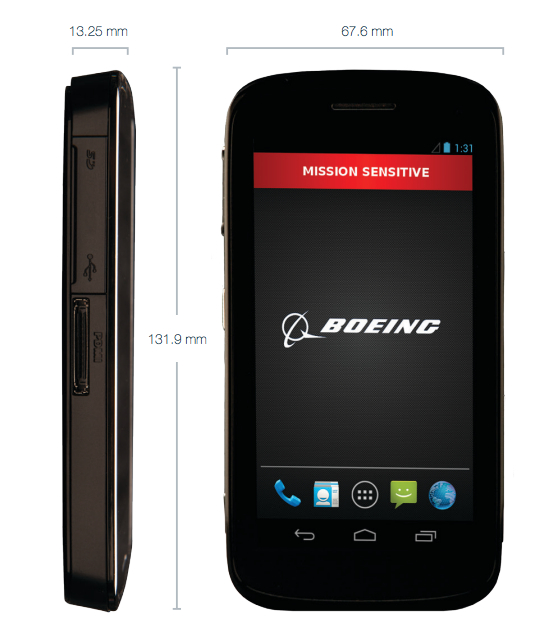Blackphone: The Smartphone That Helps Protect Your Privacy
This article is more than 2 years old
 One of the reasons I refuse to get a smartphone is the resulting lack of privacy and their susceptibility to hacking. I’m no Angela Merkel and wouldn’t talk or text about state secrets on my smartphone, but I also don’t want to deal with push notifications, GPS, or any other app that indicates where I am or what I’m doing. Now, there’s a smartphone that actually appeals to people like me — the Blackphone, which touts privacy as its most valuable service.
One of the reasons I refuse to get a smartphone is the resulting lack of privacy and their susceptibility to hacking. I’m no Angela Merkel and wouldn’t talk or text about state secrets on my smartphone, but I also don’t want to deal with push notifications, GPS, or any other app that indicates where I am or what I’m doing. Now, there’s a smartphone that actually appeals to people like me — the Blackphone, which touts privacy as its most valuable service.
Blackphone’s default setting is not to share your information or preferences unless you go in and manually change it. It will also stop any pings, advertisements, or Wi-Fi signals attempting to harvest information about your whereabouts or activities. In conjunction with preserving privacy, Blackphone is also particularly careful about user information — it’s all stored in Switzerland in a vault somewhere. It may sound kind of sketchy, but in light of the NSA revelations, maybe this is the new normal. The Blackphone was developed by an ex-Navy NEAL sniper who is fed up with the government and corporations comprising our privacy and selling, or obtaining via hacking, our private information. Of course, the NSA could almost certainly still hack a Blackphone if it really wanted to, but the phone’s security would at least put up a fight and reduce the likelihood that anyone else could infiltrate it.
Blackphone offers a number of services and liberties that might appeal to smartphone users beyond deciding what information to share with whom. Users aren’t required to sign a contract with a specific carrier and there are no restrictions in terms of configuring or modifying the settings on the phone. In addition to “world-class cryptography” built into every phone, services also include a “living platform” of updates and improvements. An estimated 2.5 million Blackphones will be produced this year and they’ll start shipping this summer, retailing for a base price of $629, which includes the services mentioned.

And if you’re looking for something more physically rugged, the Boeing Black has a tamper-proof cover, slots for two SIM cards, and biometric sensors. It also has a self-destruct mechanism that would delete all of the data stored in the phone and render the phone unusable. But that phone is still a ways off, with no projected release date.
Some people don’t think there’s enough of a market for Blackphone, given that some apps and services, such as Webroot, provide many of the same functions. But Blackphone goes beyond that, encrypting text messages and calls. The goal is to provide regular folks the kind of privacy our military might enjoy, but ultimately, wireless carriers still obtain and store records of IP addresses and out-of-network numbers. I’m thinking that a return to an old tin-can-and-string phone might be our best bet for privacy at this point.












